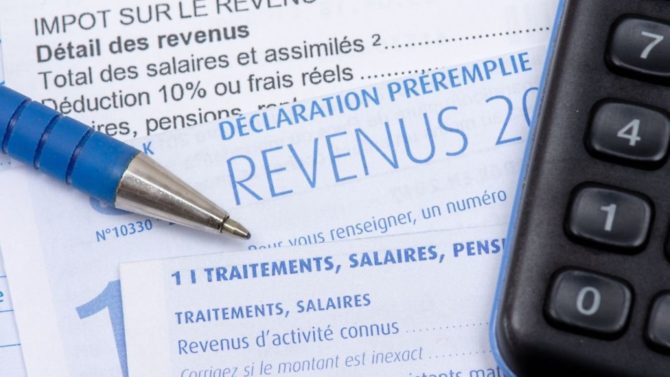10 things to know about French tax

If you are buying a French property or moving to France from the UK, you will want to know which taxes you need to pay, when you need to pay them and in which country, Sakis Elisseou of NLE account has a rundown

1. Everyone has a tax return
In the UK, most people do not have to do a tax return as most employees have tax deducted from their payslip. However, when you move to France you are obliged to fill a tax return every year, whether you have income or not.
2. Income taxes are by calendar year
The income tax year in France goes by the calendar year, January to December, rather than in the UK where it goes from April to March. Tax returns in France can only be completed during a short period set by the tax authority in France. For example, for 2020 it starts around the first week of April 2021 and it closes at the end of May if you file a paper tax return. For an online filing you get an extra couple of weeks.
3. Income taxes are calculated by household
In France, taxes are looked at by family, not individually. The income of two spouses would be combined in one tax return before the tax rates are applied.
4. You must declare UK income in France
If you live in France and receive a UK state or private pension, interest/dividends in the UK or even income from your ISA products, you will need to declare this to the French tax authorities as part of your tax return. These types of income will be taxed in France.

5. UK civil servant’s pension and UK Property Income are not taxable in France
While most pension income is taxable in France, if you are living in France and in receipt of a UK government service pension, or/and income from UK properties this would be taxed in the UK and not in France. However, this income still has to be declared in your French tax return, as it will be taken into account to determine your tax rate with which your other Income will be taxed in France.
6. You must declare all non-French bank accounts
When you move to France you must, by law, declare all bank accounts and financial products that you have outside of France. Failure to do so could result in hefty penalties. The fine would be either a fixed €1,500 per account or 5% of the amount that went through the bank account during the year, whichever is higher. It is also important to note that penalties are per account so if you are found to have two undeclared accounts you would pay a minimum of €3,000.
7. There are three property taxes in France
The three types of property tax are Taxe Foncière – paid once a year by the property owner, Taxe d’Habitation – paid once a year by whoever is resident in the property on 1 January, and Capital Gains Tax – payable upon the sale of the property (if it is not your main residence).
8. Taxe d’Habitation is dependent on income
There was a reform recently in France and if the annual household income is below €27,706 for a single person or €44,124 for a couple, they are exempt from paying this tax.
9. Capital Gains Tax goes through the notaire
When you buy a property in France, the notaire will inform the tax authorities that you are the owner and you will receive the appropriate bills the following year. Similarly, capital gains tax is organised through the notaire during the sale process.
10. You can do your taxes online
More and more French tax and property processes are accessible online and tax assistance is available online too. For the last 15 years, NLE accounting have been helping clients in the UK and France using emails, telephone and specialist cloud-based software, without the need for face-to-face meetings or post.
For personalised advice and assistance with French taxation and compliance, NLE accounting is an English and French speaking service with offices in Paris and London.
Share to: Facebook Twitter LinkedIn Email


